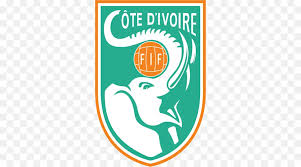Today, the Ivory Coast Ligue 1 stands as a vibrant and dynamic football league that continues to attract attention both locally and internationally. The current structure, comprising several teams, reflects a blend of tradition and modernity, with clubs striving to balance heritage with the demands of contemporary football.
Structure and Organization Ivory Coast Ligue 1
The league’s format primarily consists of a round-robin tournament where each team competes against all others, culminating in a championship playoff. This structure encourages a high level of competitiveness, as clubs vie for supremacy and the chance to qualify for international play 88clb.
Clubs are affiliated with the Ivorian Football Federation (IFF), which oversees the league’s operations, regulations, and the promotion and relegation system. This connection ensures that the league maintains certain standards while also providing a pathway for emerging clubs from lower divisions to ascend to the top tier.
Key Teams and Rivalries
Several teams have historically dominated the Ivory Coast Ligue 1, with ASEC Mimosas, Africa Sports, and Stade d’Abidjan being household names among fans. Each of these clubs has carved out a unique place in the league’s history and possesses a loyal following.
ASEC Mimosas
ASEC Mimosas is arguably the most successful club in the history of the league, boasting numerous titles and a reputation for producing world-class players. Their youth academy has been a breeding ground for talent, helping to shape the future of Ivorian football.
The club’s philosophy emphasizes skill development and discipline, which translates to success on the field. Their fierce rivalry with Africa Sports creates an electric atmosphere during matches, often drawing large crowds and intense media coverage.
Africa Sports
Africa Sports, another giant of Ivorian football, has a passionate fan base known for their unwavering support. The club has enjoyed significant success but has faced challenges in recent years, prompting a renewed focus on rebuilding and reconnecting with its roots.
Matches between ASEC Mimosas and Africa Sports are more than just games; they are cultural events that embody the spirit of Ivorian football. These encounters frequently showcase high stakes, palpable tension, and thrilling moments that leave lasting impressions on fans.
Emerging Clubs
While established clubs continue to dominate the league, several emerging teams have begun to make their mark. Clubs like SOA (Société Omnisports de l’Armée) and Sporting Club de Gagnoa are gaining traction and are pushing to challenge the historical giants.
These clubs prioritize grassroots development, community engagement, and tactical innovation, bringing a fresh perspective to the league that promises exciting football in the years to come.
Player Development and Youth Academies
One of the hallmarks of the Ivory Coast Ligue 1 is its commitment to player development. Many clubs operate extensive youth academies aimed at nurturing young talent from an early age. This focus on development serves both the clubs’ interests and the nation’s ambitions on the global stage.
Importance of Youth Academies
Youth academies are essential in cultivating local talent, providing young players with the necessary skills to succeed at higher levels. Clubs invest in training facilities, coaching staff, and competitive exposure to ensure that their youth prospects are well-equipped to transition into the senior team.
Successful academies have contributed significantly to the national team’s prowess, with many graduates going on to have illustrious careers both domestically and abroad. This cycle of development not only benefits individual clubs but also strengthens the overall quality of the Ivory Coast Ligue 1.
Scouting and Recruitment
Scouting networks play a crucial role in identifying potential talent, extending beyond the borders of Côte d’Ivoire. Clubs actively seek out promising players from surrounding countries, tapping into a broader pool of talent.
This approach fosters diversity within the league, enriching the playing style and tactics employed by different clubs. Moreover, bringing in foreign players can elevate the level of competition, compelling homegrown talents to step up their game.
Challenges Facing the League
Despite its successes, the Ivory Coast Ligue 1 faces several challenges that could impact its growth and sustainability. Issues such as financial constraints, infrastructure deficiencies, and governance concerns persist, necessitating collective action from stakeholders.
Financial Constraints
Financial instability is a persistent concern for many clubs in the league. While sponsorship deals and broadcasting rights have improved in recent years, a lack of consistent revenue streams can hinder operations and long-term planning.
Clubs must be strategic in managing their finances, balancing expenditure on player salaries, infrastructure investments, and community engagement initiatives. Developing strong business models is essential for ensuring the viability of each club and the league as a whole.
Infrastructure Development
Adequate infrastructure is critical for the success of any football league. Stadium facilities, training grounds, and medical centers require ongoing investment to meet international standards. Many clubs struggle to maintain their facilities, limiting their capacity to host major matches or attract top-tier talent.
Government and private sector collaboration is vital to address these issues. Investments in infrastructure not only improve the quality of play but also enhance the fan experience, ultimately driving greater attendance and participation in the league.
Governance and Regulation
Effective governance is paramount for the Ivory Coast Ligue 1, ensuring transparency, accountability, and fairness in operations. Strengthening regulatory frameworks can help combat corruption, maintain competitive integrity, and build trust among stakeholders.
Engagement with clubs, players, and fans is essential for establishing a governance model that works for everyone. By fostering open communication channels and prioritizing inclusivity, the league can create an environment conducive to growth and success.
